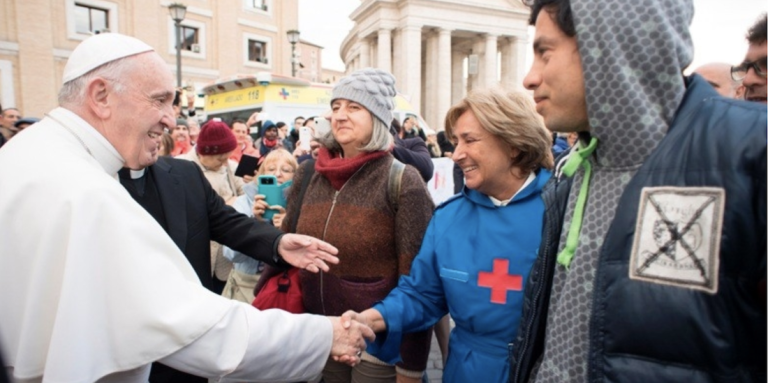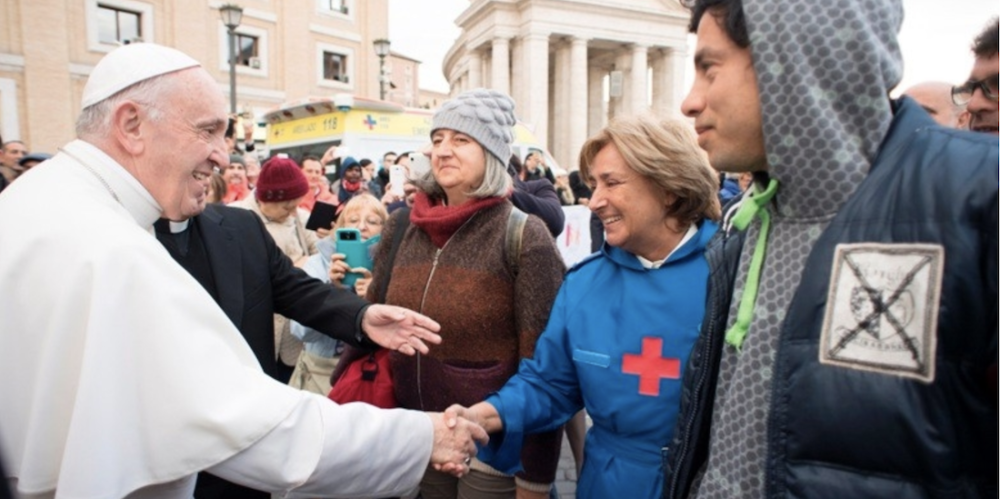
His pastoral approach embraced social justice while maintaining core Catholic teachings throughout his transformative pontificate
Vatican City — Pope Francis, who died on Easter Monday, April 21, 2025, at the age of 88, left behind a transformed Catholic Church that balanced progressive social advocacy with traditional doctrine.
His twelve-year pontificate demonstrated how religious leadership could champion liberal causes while preserving the Church’s foundational teachings on faith and morals.
A Pastoral Revolution That Defined His Leadership
The Argentine pope revolutionized papal communication through his informal style and direct engagement with global issues.

His approach to Vatican leadership emphasized dialogue over decree, creating space for discussion while maintaining clear boundaries on doctrinal matters.
This methodology allowed the Church to address contemporary challenges without compromising its theological foundations.
Francis consistently demonstrated that liberal social positions could coexist with traditional religious teaching.
His encyclicals on climate change and social inequality reflected progressive thinking, while his positions on marriage, family structure, and Catholic sacraments remained firmly rooted in centuries-old Church doctrine.
Social Justice as His Core Ministry
The late pope’s focus on economic inequality and environmental protection positioned the Catholic Church as a leading voice in global social justice movements.
His encyclical “Laudato Si'” transformed Catholic environmental theology, establishing creation care as a fundamental Christian responsibility rather than a political preference.
His advocacy for refugees, immigrants, and the economically marginalized challenged both secular and religious communities to examine their responses to global inequality. This emphasis on social action reflected traditional Catholic social teaching while applying it to contemporary crises with unprecedented urgency.
How He Maintained Doctrinal Consistency
Despite his progressive social positions, Francis maintained traditional Catholic teaching on moral theology and Church governance. His approach to marriage and family issues demonstrated how pastoral care could be enhanced without altering fundamental doctrinal positions. The pope emphasized mercy and accompaniment while upholding the Church’s understanding of sacramental marriage.
His handling of clergy sexual abuse scandals reflected this balance, implementing structural reforms while maintaining the Church’s institutional framework. These efforts demonstrated that organizational change could occur within traditional ecclesiastical structures.

His Global Impact and Interfaith Relations
Francis strengthened interfaith dialogue through his relationships with Protestant, Orthodox, Jewish, and Muslim leaders. His approach emphasized common ground on social issues while respecting theological differences. This strategy enhanced the Catholic Church‘s global influence without compromising its distinct identity.
His diplomatic efforts addressed conflicts in Latin America, Africa, and Asia, demonstrating how religious leadership could contribute to international peace efforts. These initiatives reflected the Church’s universal mission while respecting local cultural contexts.
The Enduring Legacy of Balanced Leadership
Francis’s legacy illustrates how religious institutions can address contemporary challenges without abandoning foundational principles. His approach demonstrated that progressive social engagement and traditional religious teaching could coexist when guided by pastoral wisdom and theological clarity.
This balance created both admiration and tension within the global Catholic community. Progressive Catholics appreciated his social justice emphasis, while traditional Catholics valued his doctrinal consistency. This tension reflected the complexity of leading a global religious institution in an increasingly polarized world.
Francis demonstrated that effective religious leadership required both prophetic courage and institutional wisdom. His pontificate showed how the Catholic Church could engage modern challenges while maintaining its distinct identity and mission. His death marked the end of an era that transformed how the world viewed Catholic leadership.
#PopeFrancisLegacy #CatholicChurch #SocialJustice
#TraditionalValues #PastoralCare #VaticanLeadership #FaithAndAction
TAGS: Pope Francis, Catholic Church legacy, social justice, traditional doctrine,
Vatican leadership, pastoral care, environmental stewardship, marriage and family,
interfaith dialogue, clergy abuse, economic inequality, climate change
75-word Audio Summary
Pope Francis transformed the Catholic Church’s approach to social issues while preserving traditional doctrine before his death in April 2025. His papacy emphasized social justice, environmental care, and pastoral mercy without changing core teachings on marriage, family, and moral theology. This balanced approach attracted both praise and criticism, as he addressed modern challenges while maintaining Catholic orthodoxy. His legacy reflects a Church that engaged contemporary issues through compassion rather than fundamental doctrinal change.